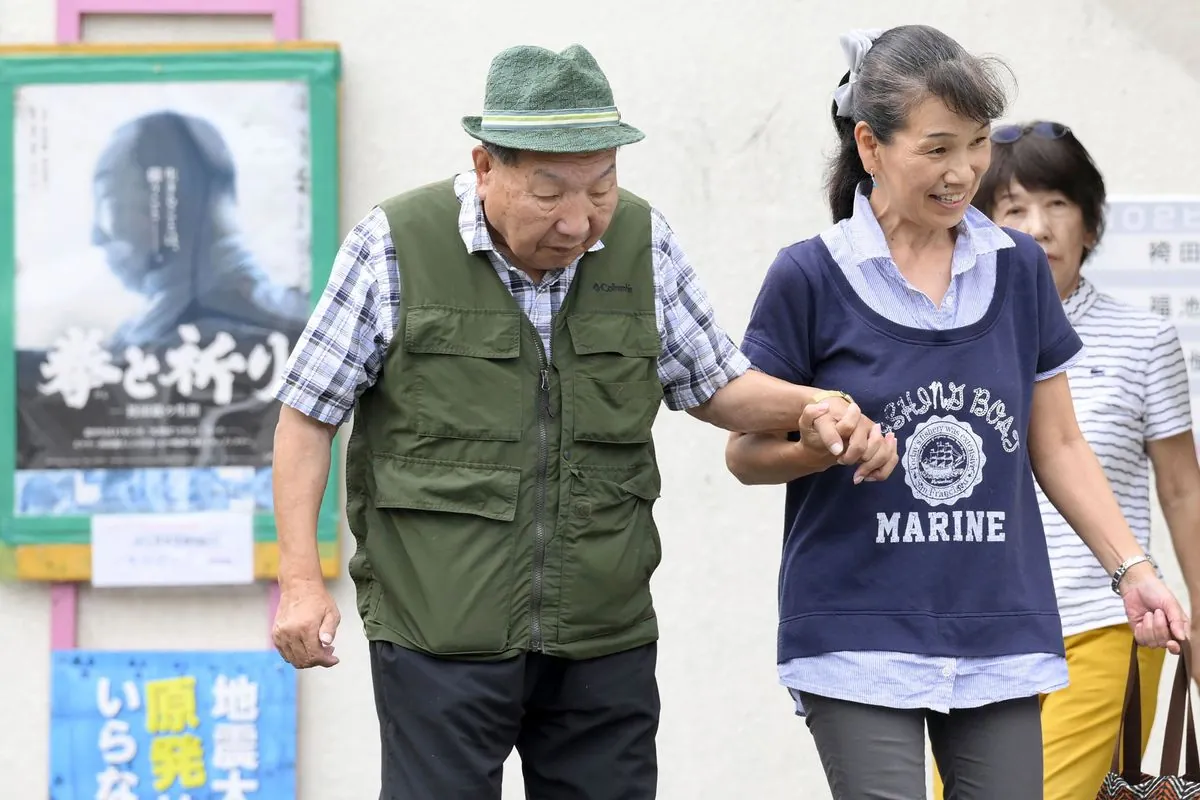Japanese Court Acquits Former Death Row Inmate After 58-Year Legal Battle
Iwao Hakamada, 88, cleared of 1966 quadruple murder charges. Case highlights flaws in Japan's justice system and reignites death penalty debate.

In a landmark decision, a Japanese court has exonerated Iwao Hakamada, an 88-year-old former boxer, of a quadruple homicide that occurred 58 years ago. This ruling overturns a previous conviction that had made Hakamada the world's longest-serving death row inmate.
The Shizuoka District Court's verdict marks Hakamada as the fifth death row convict to be found not guilty in a retrial in postwar Japanese criminal justice. Judge Koshi Kunii acknowledged multiple instances of evidence fabrication, concluding that Hakamada was not the perpetrator.
This case has brought attention to Japan's criminal justice system, which boasts a 99% conviction rate. The lengthy legal process, spanning nearly six decades, highlights the challenges within Japan's notoriously slow-paced judicial procedures.
Hakamada's sister, Hideko Hakamada, 91, has been instrumental in the fight for her brother's innocence. Her perseverance through a 58-year legal battle culminated in this acquittal, demonstrating the importance of familial support in such cases.
The case revolves around the 1966 murder of a company manager and three family members in central Japan. Hakamada was convicted and sentenced to death in 1968, but the execution was never carried out due to prolonged appeals and the retrial process.

A crucial point of contention was the evidence of blood-stained clothing allegedly worn by Hakamada during the crime. Scientific experiments revealed that clothing soaked in miso, a fermented soybean paste, for over a year would not retain visible bloodstains, casting doubt on the prosecution's claims.
Hakamada's case has reignited discussions about capital punishment in Japan. Along with the United States, Japan remains one of the only G7 nations to retain the death penalty. Public opinion in Japan largely supports executions, but cases like Hakamada's may prompt reconsideration.
The psychological impact of long-term imprisonment, particularly in solitary confinement, has been evident in Hakamada's behavior. His difficulty adjusting to life outside prison after his release in 2014 underscores the need for mental health support for individuals in similar situations.
This case also highlights the importance of DNA evidence in criminal investigations. The mismatch between Hakamada's DNA and the blood samples on the submitted clothing played a crucial role in his exoneration.
"I have nothing to do with the case ... I am innocent. When I go to sleep in soundless solitary cell every night, I sometimes cannot help cursing God. I have not done anything wrong."
The acquittal of Iwao Hakamada may serve as a catalyst for reform in Japan's criminal justice system, particularly regarding the accessibility of retrials and the use of the death penalty. As the world watches, this case could potentially influence future policies and public opinion on capital punishment in Japan.


































